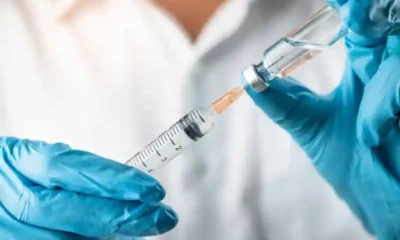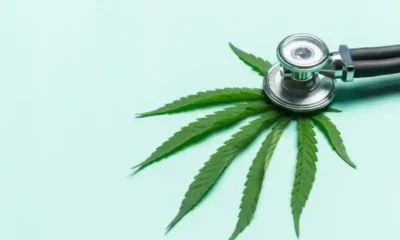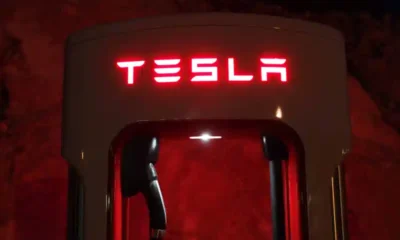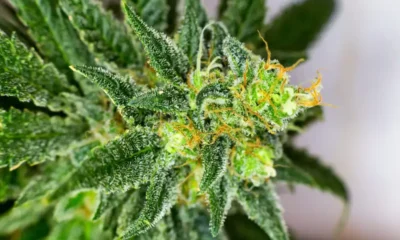Connect with us
Published
2 years agoon

A voter engagement and mobilization organization, Ground Game Texas is moving forward to present thousands of signatures to Austin, Texas’ City Hall, hoping to secure a new reform initiative on the upcoming ballot, according to reporting from Fox 7 Austin.
The “Austin Freedom Act of 2021” aims to decriminalize low-level cannabis possession and ban no-knock police warrants, two measures that “have been very popular with voters but have not yet become city law,” according to Mike Siegel, political director of Ground Game Texas.
“Thanks to the tireless efforts of on-the-ground organizers from Ground Game Texas and partner organizations, Austin residents will soon have the ability to make lasting change to our antiquated and racist criminal justice laws,” Siegel said in a press release. “With successful campaigns like these, Ground Game Texas will continue to empower and excite communities around progressive change—and deliver for the marginalized communities that too often get left behind.”
Cannabis remains illegal in Texas, though a 2020 Austin ordinance changed how the city’s officers treat cannabis enforcement in certain situations. The ballot language would not necessarily change the procedures currently in place in the city; President of the Austin Police Association Ken Casaday nodded to the change in this regard, saying he doesn’t see a point because “we already changed the law. Our officers don’t arrest for low amounts of marijuana.”
Though, Siegel and Ground Game Texas say this must be made official, adding that the ordinance formalizes a current informal policy” and that it makes sure “we’re not wasting money sending people to jail for having a little pot on them,” Siegel said.
The second element involving no-knock search warrants has also not formally been put into law. Siegel says these warrants are unnecessary and dangerous, citing instances where warrants have resulted in death or injury to officers or civilians.
“We want to avoid unnecessary injury to residents and officers themselves,” Siegel said.
Casaday said that he believes there is a necessary to warrant no-knock searches in some situations, though as it stands, the city doesn’t utilize this move very often, citing three or four happening in 2021.
“There haven’t been that many this year, and it’s usually saved for very violent individuals or people that have barricaded their homes,” Casaday said.
The measure would also prohibit the use of city funds to request or test cannabis to determine whether it meets the state’s definition of a lawful product. Because hemp is legal in the state, it sometimes creates a challenge for law enforcement to determine if seized cannabis products comply with state laws.
Siegel and the organization presented more than 34,000 signatures to the city clerk, of which 22,000 have been pre-validated. At least 20,000 valid signatures are required to be certified for the ballot.
Siegel added, “This is just a case of the people taking matters into their own hands and getting at least our city government to do the right thing.”
Texas may not see statewide, adult-use cannabis reform in the near future, but earlier this year, Governor Greg Abbott signed a medical cannabis bill that expanded the state’s approach to medical access. House Bill 1535 expanded treatment to those suffering PTSD and any form of cancer (previously being only those suffering from terminal cancer). It also allowed patients to access medical cannabis if they participated in research studies.
While there is no current, statewide, citizen-led initiative process that would enable advocates to put an issue like cannabis decriminalization or legalization on the Texas ballot, a recent poll shows that Texans would likely support such a measure.
A survey from the University of Houston and Texas Southern University found that 67 percent of Texas residents back broad reform. Fifty-one percent of participants who identified as Republican also said they back legalization.


New York Cannabis Control Board Approves 101 New Adult-Use Licenses


Killer Pharmacist Who Diluted Life-Saving Drugs To Be Freed From Prison


Doctors Join Call To Regulate Intoxicating Hemp Cannabinoids


Is Your Tesla Self-Driving Car Narcing You Out?


Psychedelics Offer Long-Term Improvement in Sexual Functioning, Enjoyment


March Marks New High for Cannabis Sales in Michigan
